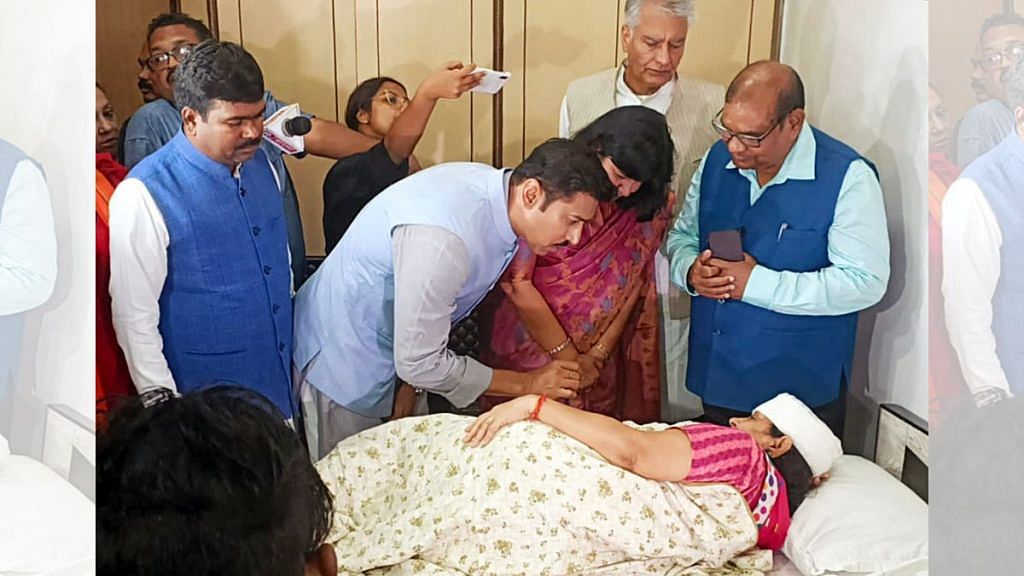New Delhi: A Bharatiya Janata Party (BJP) fact-finding team set up to investigate the violence which broke out during the party’s ‘Nabanna Chalo Abhiyan’ earlier this month has accused the Trinamool state government of being an “autocratic, dictatorial, and genocidal regime”.
In a report, accessed by ThePrint, the BJP has alleged that “West Bengal is in a state of anarchy where there is complete breakdown of the constitutional machinery, and the state has been unable and unwilling to protect its citizens.”
The five-member fact-finding committee, set up by BJP president J.P. Nadda, had met party workers injured during the protest march against the Trinamool Congress (TMC) in Kolkata on 17 September. The BJP had conducted a ‘Nabanna Chalo’ rally on 13 September against alleged corrupt practices of the TMC government.
Speaking to ThePrint, TMC Vice-President Jay Prakash Majumdar said the BJP report was a “sham”. “Genocide is what happened in Uttar Pradesh during CAA protests when those raising slogans were attacked brutally by police,” he said. “Here, the police exercised utmost restraint despite being targeted and attacked by the BJP workers who were caught on camera setting a police vehicle ablaze.”
The fact-finding committee consisted of former Uttar Pradesh Director General of Police Brijlal, Rajya Sabha MPs Rajyavardhan Singh Rathore and Samir Oraon, Aparajita Sarangi and Sunil Jakhar.
Stressing on the fact that a fair enquiry is not possible by the state police as “they are hand in glove with their political masters, the ruling TMC, led by Mamata Banerjee, who is also the Home Minister. The committee recommends that the entire episode should be enquired into by Central Agency CBI”.
Also read: ‘More cash recovery, hawala’ — Bengal CID probes ‘clear horse-trading motive in MLA cash haul’
What the BJP’s report says
“This Abhiyan under the Bharatiya Janata Party had taken the shape of a ‘Jana Andolan’, a Peoples’ Movement,” the report states. “The present Abhiyan is an expression of the collective voice of the people who expressed their severe resentment towards police excesses under the current TMC Govt.”
The report adds, “instead of allowing divergent voices to express themselves in a constitutional democracy, this State regime headed by the Hon’ble CM of West Bengal and through the law-and-order machinery targeted, and threatened BJP karyakartas coming from across the State…. Thousands of illegal arrests were made. Not a single bus was allowed to enter Kolkata on 13th of September 2022, the day of the Nabanna Chalo Abhiyan.”
It also accuses the West Bengal government of targeting BJP workers. “On 14th September, Trinamool Congress MP Abhishek Banerjee brazenly praised the efforts of police for targeting BJP karyakartas during the Nabanna Chalo march. Moreover, on national TV, Abhishek Banerjee recklessly stated that he would have shot the protestors in their head if he was present at the site, referring to the alleged assault on certain Kolkata police officials. This very statement of the second-in-command of the TMC party reveals the fascist mindset of their Party,” the report said.
The BJP also demanded that the National Human Rights Commission should go to Kolkata to conduct an inquiry into “gross human right violations and brutality by Kolkata Police and TMC goons”.
With inputs from Sreyashi Dey
(Edited by Zinnia Ray Chaudhuri)
